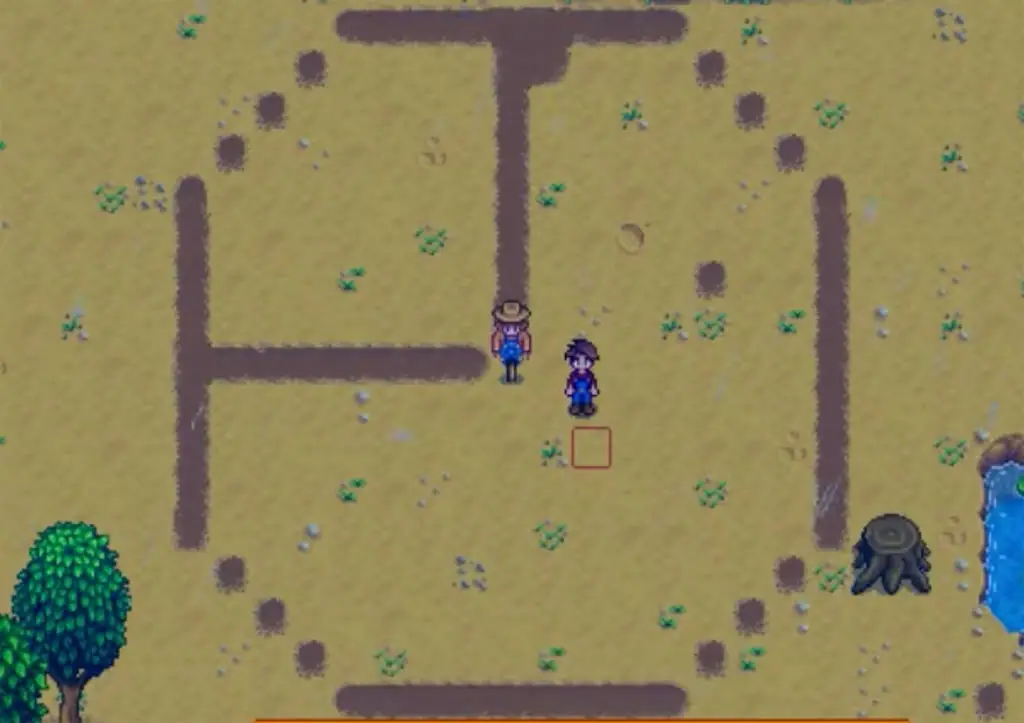Mastering the Use of Scarecrows in Stardew Valley
Hello, fellow gamers! In this tutorial, we will discuss the importance of scarecrows in Stardew Valley. When you begin the game, Mayor Lewis will give you 15 Fiber Seeds. Plant them on the first day, and by the time you harvest on the fifth day, you can reach Farming Level 1. At night, you will unlock the scarecrow recipe, and by the sixth day, you can craft a scarecrow.
Crafting Scarecrows
To craft a scarecrow, you will need wood, coal, and fiber. You can obtain coal by breaking rocks on your farm.
Scarecrow Function: Protecting Your Crops from Crows
Scarecrows protect your crops from crows. If you plant a large number of crops at once, you are likely to attract crows. For every 15 crops, a crow will appear, with a maximum of four crows. For example, if you have 16 crops, you will see one crow every day, and if you have 31 crops, you will see two crows.
Crows landing on your crops can eat them, but if your crops are within the scarecrow’s coverage area, they will be protected. However, there are some exceptions:
- Crows do not eat wild seeds or crops during the seeding and germination stages.
- These still count as crops, but crows will not appear on these squares and will not cause crops to disappear.
- Having many wild seeds or ungerminated seeds can help protect your crops from crows to a certain extent.
- Similarly, only a portion of the crops may be protected by scarecrows, but unprotected crops might still not be eaten by crows as long as they don’t spawn on those tiles.
- There are also other factors that can influence crows, similar to the way the Crop Fairy works, but we won’t go into detail here. For beginners, just make sure your scarecrow provides full coverage for your crops.
Additionally, there are no crows in the greenhouse or on Ginger Island, so you don’t need to craft scarecrows for those areas.
Scarecrow Coverage Area
The scarecrow’s coverage area is not a perfect square. It covers eight tiles up, down, left, and right, and six tiles diagonally, with a total area of 17×17 minus 4×10, which equals 249 tiles.

If you don’t have a mod to display the coverage area, it’s relatively easy to determine the range. Count eight tiles directly from the scarecrow for its boundary, then expand four tiles to each side, and connect the four sides to form the total area. You can also use the diagonal six tiles to determine the range.
As you can see, the scarecrow’s range is quite large. In the early game, one scarecrow placed in the center should be enough. It is recommended to determine the scarecrow’s position first and then plant crops around it.
Many players prefer to first connect their plots of land and then place scarecrows on either side or at the top and bottom. However, this approach can make it more challenging to determine the coverage area, especially when trying to ensure full coverage with multiple scarecrows. Due to the reasons mentioned earlier, it may not be immediately apparent if a crop is not covered by a scarecrow, and it might be eaten by a crow later on as it grows.
This arrangement can also lead to wasted coverage areas. Placing a scarecrow on each side may not provide a larger protected area compared to having one in the center. In the early stages of the game, the materials required for crafting scarecrows can be relatively high. Although placing scarecrows on both sides might save some space for planting, it might not be worth the trade-off in terms of coverage and resources.
Scarecrow and Sprinkler Combinations
There are many ways to arrange scarecrows and sprinklers. For example, with a basic sprinkler, you can place them diagonally in groups of three, which is suitable for planting hops in the summer. Another method is the zigzag arrangement, which may not be as convenient as the first method but looks better and makes it easier to remember the positions.
With a quality sprinkler, you can maximize the area by placing 21 sprinklers, but 15 should be enough. Arrange them in a modular square, and if you need to plant more crops, simply repeat the pattern without spending extra time planning.
Although there is space, it’s not recommended to leave empty rows in the middle, as it will affect harvesting efficiency. This is particularly evident for crops that require multiple harvests. For crops with fewer harvests, the impact is smaller, but it may still take up more space.
By following these tips, you can optimize your scarecrow usage and protect your crops in Stardew Valley.